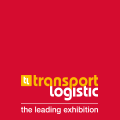In today's vote, the European Parliament's plenary took a historic decision to support the efficiency and greening of road transport through the revision of the Weights and Dimensions Directive. With no silver bullet for decarbonisation, the low-hanging fruit of larger trucks cannot be missed.
The European Parliament's plenary today confirmed the report of Isabel García Muñoz, the Parliament's lead rapporteur of the Weights and Dimensions Directive.
Most importantly, the Parliament's version refines the incentives proposed by the European Commission to help the commercial road transport industry achieve its decarbonisation objectives.
The incentives backed by the plenary include:
- Weight exemptions for zero-emission vehicles
- Additional incentives for vehicles used for the road legs of combined and intermodal transport
- The ability to use 44-tonne combinations and high-capacity European Modular System vehicles for cross-border movements between two consenting Member States
However, the plenary confirmed the Commission's proposed 2034 phase-out date, after which the 44-tonne cross-border facilitation measure will only apply to operators with zero-emission vehicles. This approach is not technology neutral.
IRU EU Director of Advocacy Raluca Marian said, "The European Parliament has given a very important signal that incentives are needed to help road transport operators further decarbonise their operations.
"Facilitating border crossings with four additional tonnes and supporting national and cross-border traffic with high-capacity vehicle combinations is not only about improving transport by road, but also about improving transport in general, as well as the environment. For a vibrant EU economy, transport should not be about road, rail, maritime or air. It should be about the best use of all modes."
"We are happy that the Parliament's plenary followed Isabel García Muñoz's pragmatic report, as adopted in the transport committee, and did not fall into the trap of pinning one mode against another," she added.
The plenary's report defines the Parliament's position ahead of negotiations with the Council. However, the Parliament will be entering into recess at the end of April and the Council has not yet agreed on its negotiating position. The final decision will be taken under the next Parliament.
Raluca Marian said, "Even though this file will not be negotiated with the Council under the current legislature, it is an important signal to Member States that the European Parliament supports incentives for zero-emission vehicles.
"There is still a lot of hesitation in the Council when it comes to incentives for zero-emission vehicles. Member States must understand that we cannot accelerate the uptake of zero-emission vehicles without accompanying operational incentives."
Source, IRU



.jpg)






